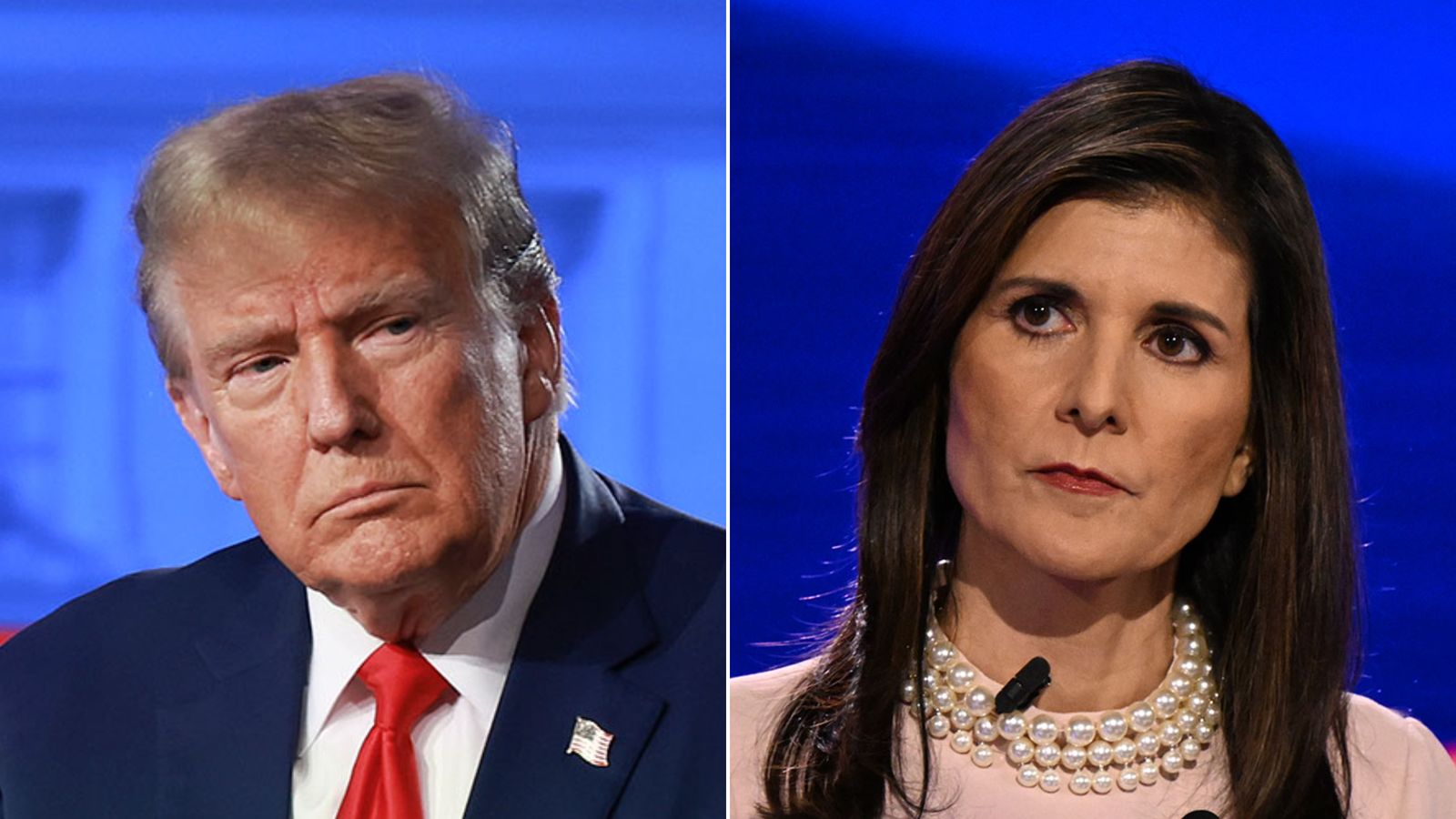Former President Donald Trump is known for his aggressive tactics against political opponents, often resorting to insults, conspiracy theories, and derogatory nicknames. This strategy, primarily aimed at differentiating his rivals from the predominantly white GOP base, has been employed repeatedly against figures like former President Barack Obama and Vice President Kamala Harris.
Trump’s attacks have ranged from spreading falsehoods about Obama’s birthplace and frequently using his middle name, Hussein, to baselessly questioning Harris’s eligibility due to her immigrant parents. He also targeted Ted Cruz, his main challenger in the 2016 Republican primary, by promoting a false National Enquirer report linking Cruz’s Cuban-born father to JFK’s assassin, Lee Harvey Oswald. Despite this, Cruz, like many other Republican officeholders, has endorsed Trump’s reelection bid.
Trump’s latest target is Nikki Haley, the former South Carolina governor and his administration’s ex-ambassador to the United Nations. Trump has taken to social media to misspell and mock Haley’s given first name, Nimrata, and has absurdly questioned her eligibility to run for office despite her being a natural-born U.S. citizen.
Ironically, it is Trump who faces more substantial questions about his eligibility under the 14th Amendment. A judge in Maine has deferred a decision on Trump’s appearance on the 2024 presidential ballot until the U.S. Supreme Court rules on a Colorado case where Trump was declared ineligible under the 14th Amendment’s insurrectionist clause.
Haley, on the other hand, has been cautious in her criticism of Trump, aiming not to alienate his supporters. Her strategy appears to be working, as polling suggests she poses a threat to Trump’s dominance in New Hampshire.
Trump’s focus on Haley marks a shift from his previous target, Florida Gov. Ron DeSantis, whom he derisively calls “DeSanctimonious.” With DeSantis finishing a distant second in the Iowa caucuses, Trump has turned his attention to Haley.
Trump’s attacks on Haley have been seen as an attempt to “otherize” her, reminding voters of their white identity and activating them to vote. He has also criticized Haley’s record in his Cabinet and at the United Nations and accused her of encouraging independents to support her in the GOP primary.
Trump’s allegations of non-Republicans artificially boosting Haley’s numbers have been dismissed as untrue. If Haley manages a surprise win in New Hampshire, it will likely be due to support from these undeclared voters.
Meanwhile, Trump has been dealing with legal issues, including a defamation lawsuit involving former columnist E. Jean Carroll. Last year, a jury found him liable for sexually abusing Carroll in 1996.
One Republican who has consistently opposed Trump is Utah Sen. Mitt Romney. In a recent interview, Romney expressed his concern about the number of people who believe Trump’s claims without question, including the false assertion that Biden was not legitimately elected.
Note: Romney overstated the facts in his interview. The jury found Trump liable for sexual abuse, not rape.

